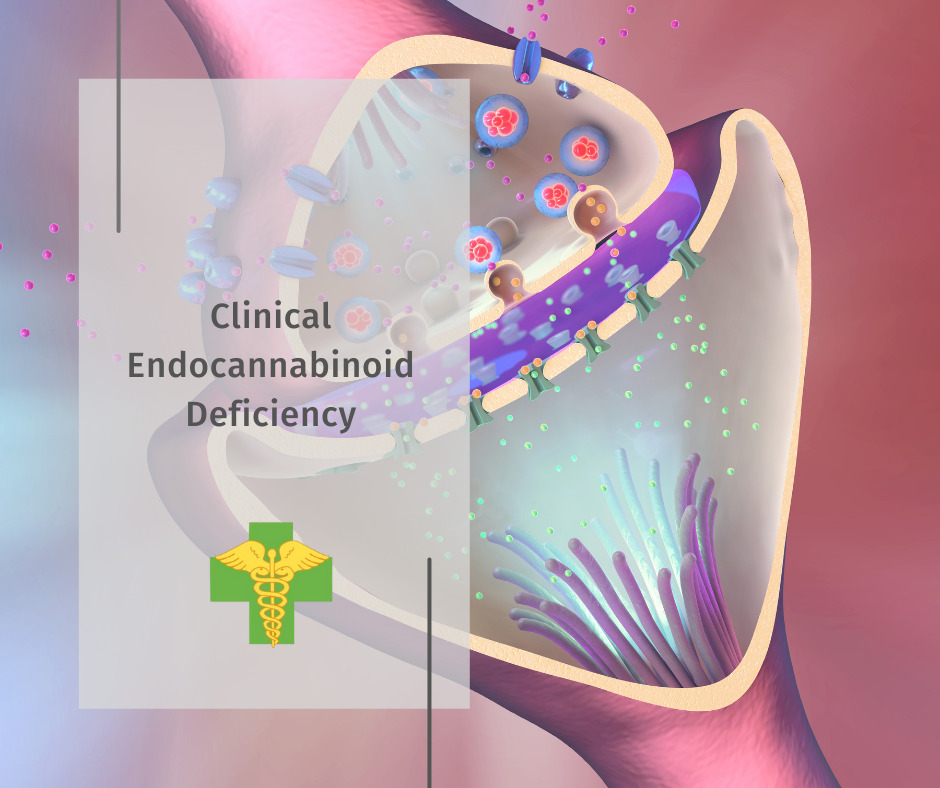Clinical Endocannabinoid Deficiency
Clinical Endocannabinoid Deficiency: When Does It Happen and Why?
Clinical Endocannabinoid Deficiency is a medical theory that has gained traction in recent years. The theory suggests humans have an underlying endocannabinoid tone responsible for endocannabinoid levels. When this tone is disrupted, and endocannabinoid levels are deficient, a range of symptoms and health conditions can occur.
This article will discuss when Clinical Endocannabinoid Deficiency happens and why.
Endocannabinoid Tone
Our body produces endocannabinoids, chemical compounds that bind to cannabinoid receptors. These receptors play an essential role in many physiological processes and are located throughout the body.
There are two types of cannabinoid receptors, CB₁ and CB₂. CB₁ receptors are found primarily in the central nervous system, while CB₂ receptors are in the peripheral nervous system.
Our endocannabinoid tone is regulated by the production, metabolism, and relative abundance of these cannabinoid receptors. When this system is functioning correctly, the endocannabinoid tone helps maintain homeostasis in the body. However, when an endocannabinoid issue occurs, the endocannabinoid tone becomes disrupted, leading to adverse symptoms.
Causes of Clinical Endocannabinoid Deficiency
Several factors can contribute to clinical endocannabinoid deficiency (CED). Genetics, environment, and lifestyle choices can all play a role in disrupting the endocannabinoid tone.
For example, certain genetic conditions can lead to deficiencies in endocannabinoids’ enzymes. This can prevent the body from being able to regulate endocannabinoid levels properly.
Environmental factors such as stress or exposure to toxins may also cause issues. When the body is constantly under strain, it can lead to a decrease in endocannabinoid production.
Lifestyle choices like diet and exercise can also have a negative impact. A diet high in unhealthy fats can prevent the body from adequately metabolizing endocannabinoids. Additionally, a sedentary lifestyle can lead to a decrease in endocannabinoid production.
Diseases Associated with Clinical Endocannabinoid Deficiency
CED has been linked to a variety of diseases and health conditions. These include migraines, fibromyalgia, irritable bowel syndrome, and Crohn’s disease.
While more research is needed to confirm the role of CED in these and other diseases, the theory provides a potential explanation for why some people are more susceptible to certain conditions.
Treating Clinical Endocannabinoid Deficiency
There is no one-size-fits-all approach to treating clinical endocannabinoid deficiency. However, lifestyle changes, dietary supplements, and medications may help improve endocannabinoid tone.
CBD and other cannabinoids are a potential treatment option for clinical endocannabinoid deficiency. This is because CBD may boost endocannabinoid levels and stop the breakdown of endocannabinoids.
Other lifestyle changes that can help improve endocannabinoid tone include exercise, stress reduction, and getting enough sleep. Eating a healthy diet and avoiding sugary or processed foods are also important.
The Bottom Line
CED is a complex medical condition that is only beginning to be understood. However, the theory provides a potential explanation for a wide range of diseases and health conditions. While more research is needed, CBD and other cannabinoids may offer a promising treatment option for those with clinical endocannabinoid deficiency.
If you believe you have clinical endocannabinoid deficiency, talk to your doctor about treatment options. With the right approach, you can improve your endocannabinoid tone and find relief from your symptoms.
Sources:
https://www.ncbi.nlm.nih.gov/pmc/articles/PMC5576607/
https://www.leafly.com/news/health/what-is-endocannabinoid-deficiency







